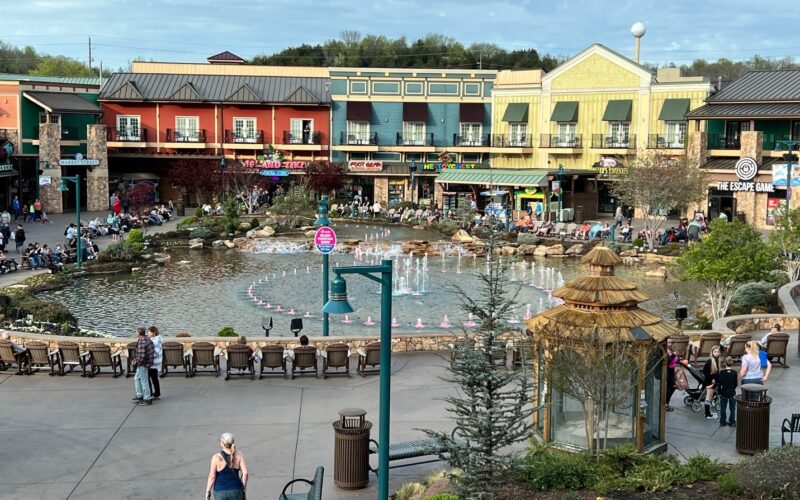Tourism-driven regions have now become hotspots for real estate opportunities. More buyers are recognizing that these locations offer more than scenery and entertainment. Whether you’re looking for a second home, a rental property, or a long-term investment, buying in a high-traffic area can provide serious advantages. Properties in these regions often hold their value well, attract a broad range of visitors, and offer a flexible mix of personal and income-generating use.
One of the most talked-about examples in recent years is the Smoky Mountains, especially Pigeon Forge. Known for its family-friendly attractions, mountain views, and year-round tourism, Pigeon Forge has seen steady growth in both visitors and real estate activity. Tourism fuels local development, attracts consistent crowds, and boosts demand for vacation rentals and homes. This combination has pushed more buyers to explore what the market has to offer.
Growth-Backed Local Economy
Tourist regions often benefit from more than just seasonal traffic—they tend to develop stronger, more active local economies. Restaurants, entertainment venues, and service providers rely heavily on tourism, which keeps business flowing and jobs active throughout the year.
This economic activity has a direct effect on real estate. When businesses thrive, the need for housing and rental accommodations grows too. That helps stabilize property values and makes the area attractive for short-term gain and future resale, especially in areas like Pigeon Forge.
The constant flow of travelers creates a need for both short-term and long-term lodging, helping drive demand across different segments of the housing market. When searching for Pigeon Forge houses for sale, working with experts like Local Realty Group can be a major advantage. Their regional knowledge and access to high-demand listings give buyers a better shot at finding properties that fit both budget and investment goals.
Strong Short-Term Rental Income
Owning property in a popular tourist town opens the door to strong short-term rental income. Because these areas receive consistent traffic, the need for temporary lodging stays high. Visitors often prefer renting a home or cabin instead of staying in hotels, especially if they’re traveling with family or for longer stays. In turn, this creates reliable demand and allows property owners to generate income regularly without long vacancies.
For owners, this can lead to a steady stream of bookings, especially during holidays and seasonal events. Well-located homes with appealing features like scenic views or hot tubs tend to stay booked, particularly in places like Pigeon Forge, where travelers expect a full vacation experience. The high turnover of guests gives owners more flexibility in adjusting prices based on season, availability, and special local events.
Easy-To-Market Properties
In tourism-heavy areas, properties tend to be easier to market because the destination already does most of the advertising. People are actively searching for stays in these locations, so owners don’t have to work as hard to get attention. Listings often perform well on vacation rental platforms, and photos of the area can immediately attract interest.
Marketing is also helped by the amount of tourism-related content online. Travel blogs, videos, and social media posts all contribute to the area’s visibility. This means your property is already part of a larger travel conversation. Owners can tap into that buzz by highlighting how their home fits into the visitor experience.
Commercial Foot Traffic Advantage
Owning property in a high-tourism area also creates unique benefits for those interested in mixed-use or commercial investments. High foot traffic in these regions can naturally increase the visibility of any property with retail or service space. Even a residential property used as a small-scale business, like a boutique or specialty rental, can benefit from being placed where people are already walking, shopping, and exploring.
This kind of exposure can help smaller operations build a steady customer base without the need for large marketing budgets. People visiting the area are often in the mindset to explore local shops or try something new, which works in favor of any commercial component tied to your real estate. If you’re buying a property that could serve more than one purpose, high traffic becomes a valuable asset that supports growth and income potential.
Global Buyer Appeal
The stronger the destination’s name recognition, the easier it is to draw in long-distance or overseas interest. That means more competition when it’s time to sell and more potential guests when using the property as a rental.
This global appeal also brings more flexibility. You’re not limited to a single group of renters or buyers. Travelers from different parts of the world are often drawn to recognizable destinations like Pigeon Forge for vacations, reunions, and seasonal getaways.
Appreciation Over Time
Properties in tourist hotspots often gain value as the area becomes more developed and better known. While there can be short-term dips, like in any market, the long-term view is generally favorable. As more visitors discover the region, demand rises, which puts upward pressure on pricing. Even modest homes can grow significantly in value over a decade.
What helps make this appreciation steady is the continuous effort by cities and towns to keep their tourism appeal strong. New attractions, improved public spaces, and better infrastructure all contribute to making these areas more desirable. When local leadership is focused on visitor experience, it often ends up benefiting property owners through stronger resale potential and rising property values.
Justifying Upgrades
In tourism-driven areas, upgrading your property often brings a fast return. Whether it’s adding a deck, installing a hot tub, updating interiors, or modernizing bathrooms, these investments often translate to higher nightly rates or better guest reviews. In a competitive market, even small upgrades can help a home stand out.
For owners who want their property to do well, it’s easier to carry out improvements when the market supports it. High guest turnover means more people see and experience your space, so improvements get noticed and rewarded. These areas often create a natural incentive to maintain and upgrade, especially when travelers expect a certain level of comfort and style during their stay.
Reliable Infrastructure
Popular tourist spots usually offer better infrastructure compared to quieter, rural areas. Roads are better maintained, public services are more responsive, and internet access tends to be more reliable. It matters not just for guests but for property owners, too. Whether you’re managing the home remotely or visiting often, smoother day-to-day operations make a real difference.
Additionally, the presence of restaurants, shops, entertainment, and healthcare makes these regions easier to live in or rent out. Guests want access to everything nearby, and owners want a place that’s easy to care for. Pigeon Forge, for example, benefits from a well-developed system built to support both residents and millions of annual visitors. That level of readiness adds another layer of security when investing.
Buying property in high-tourism areas like Pigeon Forge brings more than beautiful scenery or vacation vibes. It opens doors to real growth, strong returns, and long-term value. From global appeal to reliable infrastructure, the benefits go well beyond what many buyers first expect.




